In the vast and harsh wilderness of Alaska, where winding glaciers carve through pristine taiga forests, exists a small but resilient community: the Alaskan hunters. They are descendants of ancient survival traditions, living in harmony with nature, relying on hunting and fishing skills for sustenance. The Atchley family, living in isolation near the Nowitna River for nearly two decades, exemplifies this spirit of self-reliance and deep connection to the Alaskan wilderness. Their story is not just a journey of survival but also a testament to choosing a different way of life, where humans find freedom and meaning in harmony with nature.
Journey to the Nowitna Wilderness
In 1999, David and Romey Atchley, a young couple yearning for a simple life close to nature, stumbled upon a hunter’s cabin for sale in central Alaska. This bold decision led them to the Nowitna River, a winding tributary in the vast wilderness, far from any signs of modern life. Leaving behind the noisy and comfortable city life in Minnesota, David, a talented computer engineer, and Romey, a young woman who loved adventure, chose Alaska as the place to build their nest and nurture their dream of a free and independent life. The simple log cabin, nestled in the wild, became a symbol of a new beginning, where they embarked on a journey of discovery and conquest of the life of true hunters.
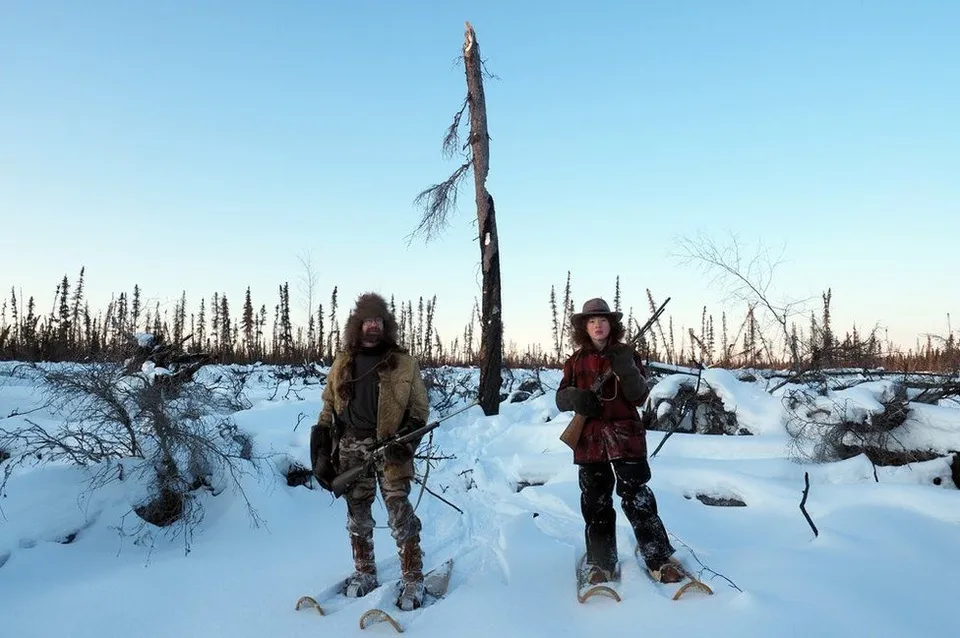
The move to Alaska was not just a change of location but a revolution in lifestyle. The Atchley family gave up modern conveniences, embracing the hardships and challenges that the wilderness offered. They found joy and meaning in self-sufficiency, living in rhythm with nature, and building a life based on the traditional survival skills of Alaskan hunters.
Facing Nature: Challenges and Survival
Life for the Atchley family in Alaska is not without its thorns. They face harsh weather conditions, from freezing winters with temperatures plummeting to -65 degrees Celsius, to short summers with aggressive mosquitoes and the ever-present threat of wildfires. The danger from wild animals like grizzly bears and wolves is also an integral part of their daily lives. To survive and thrive in this harsh environment, the Atchley family has learned to adapt and equip themselves with the necessary survival skills of a hunter.
Hunting and fishing became the primary sources of food for the family. David and Sky regularly hunt moose, caribou, and other wild animals to ensure a year-round supply of meat. They also utilize the abundant fish from the Nowitna River to supplement their daily meals. Hunting skills are not only a means of livelihood but also a vital part of the cultural identity of Alaskan hunters.
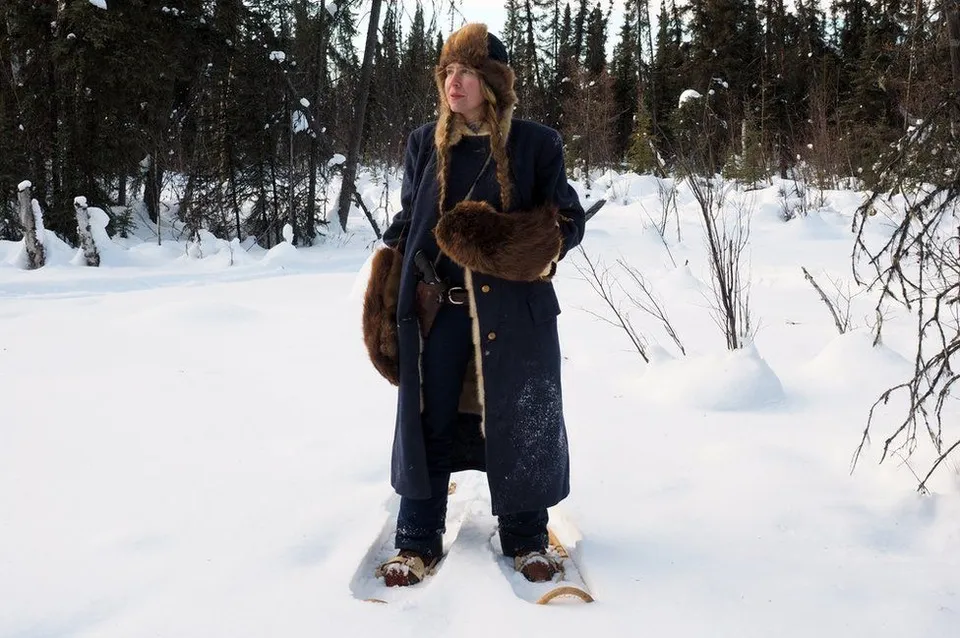
To prepare for the long and harsh winter, the Atchley family must stockpile a large amount of food and firewood. They built an underground food cellar, utilizing the permafrost to preserve fresh food. Thousands of cans of food are also stockpiled to ensure food supplies during the winter months when hunting becomes more difficult. Firewood is prepared from the summer to heat the log cabin throughout the freezing winter. Every activity is carefully calculated and prepared to cope with the challenges that the Alaskan wilderness presents.
A Day in Isolated Life
A day for the Atchley family begins early, as dawn breaks over the Nowitna River. The first task of the day is usually to light the stove and prepare breakfast. After breakfast, David and Sky often go out to check animal traps or hunt, while Romey stays home to take care of household chores, gardening, and tend to the family’s small garden. Each family member has their own tasks and responsibilities, contributing to maintaining a self-sufficient life.
The afternoons are usually spent repairing the house, preparing firewood, or doing handicrafts like tie-dyeing T-shirts to sell for extra income. The Atchley family makes their own wine, jams, and herbal teas from nature’s bounty. Evenings are a time for the family to gather together, chat, read, play the guitar, or write. They have no Internet or television, but their spiritual life is incredibly rich and profound.

Isolated living allows the Atchley family ample time for reflection and contemplation on life. They learn to appreciate simple things, value time, and savor peaceful moments together. The bond between family members becomes stronger than ever as they overcome hardships and share joys in the wilderness.
Cultural Identity of Alaskan Hunters
The Atchley family’s life reflects a part of the unique cultural identity of Alaskan hunters. From ancient times, Alaska Natives have relied on hunting and fishing for survival in this harsh environment. Hunting skills, knowledge of nature, and a spirit of self-reliance have become core cultural values, passed down from generation to generation.
The Atchley family, though not native, has continued and developed these values in their lives. They respect nature, live in harmony with the wilderness, and use traditional skills to survive and thrive. Their life is a testament to human resilience, fortitude, and adaptability in the face of nature’s challenges.
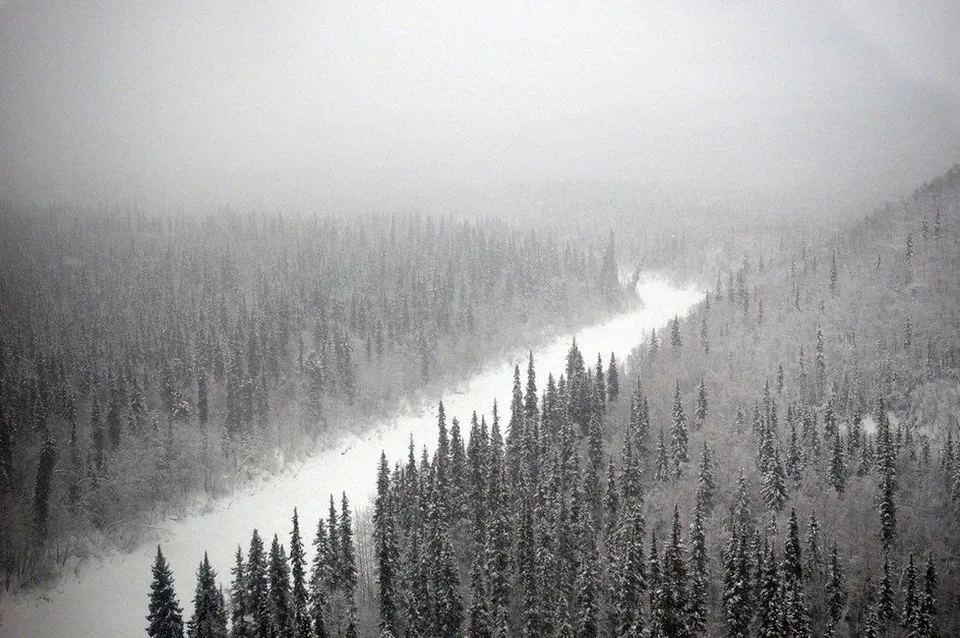
The cultural identity of Alaskan hunters is not only expressed through survival skills but also through a deep connection to the land. They consider nature their home, their source of life, and an inseparable part of their existence. Respect and love for nature are an important part of their value system, helping them maintain a sustainable and harmonious life with the environment.
Education and Connecting with the Outside World
Despite living in isolation, the Atchley family is not entirely cut off from the outside world. They maintain limited contact to purchase necessities and visit relatives. Each year, David makes two trips to the city to buy essential supplies that they cannot provide for themselves. They also spend a month each year visiting family and friends in Alabama.
Sky is homeschooled by his parents. Although he does not attend school like other children, Sky is equipped with a comprehensive education and develops a rich imagination. He is fluent in reading and writing, plays the guitar, and has a passion for writing. This special education helps Sky develop the skills and qualities necessary to adapt and succeed in life, whether in the wilderness or in the modern world.
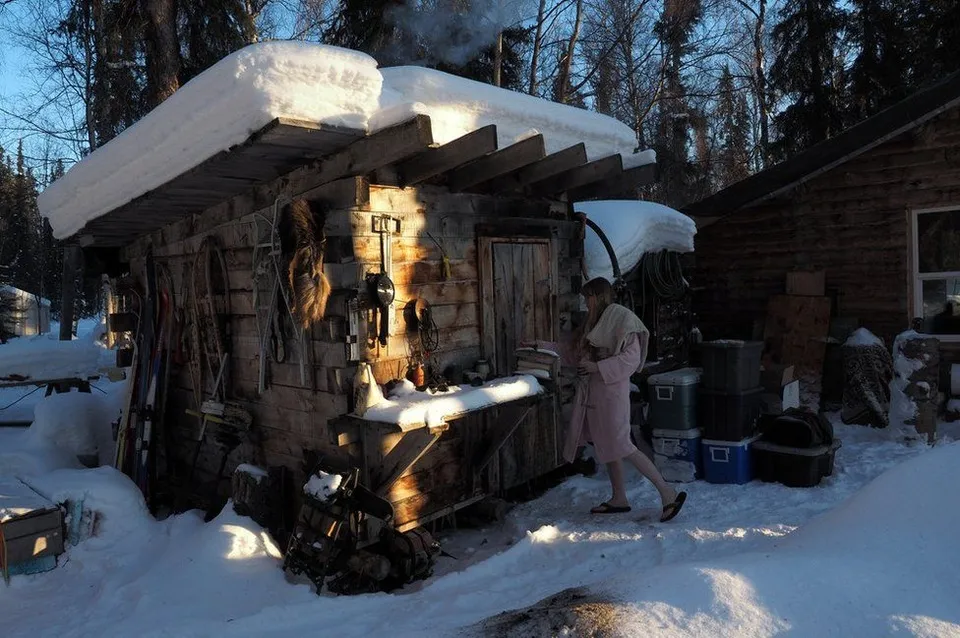
Despite limited contact with the outside world, the Atchley family does not feel lonely or lost. They find joy and satisfaction in their free and independent life in the wilderness. They cherish peaceful moments together and enjoy the tranquility of the Alaskan landscape.
The Appeal and Lessons from Alaskan Wilderness Life
The story of the Atchley family attracts the attention of many because it offers a different perspective on life, a bold and different choice from the modern and comfortable lifestyle. Their life shows that happiness does not necessarily come from material possessions or the hustle and bustle of urban life, but can be found in simplicity, closeness to nature, and family bonding.
From the Atchley family’s life, we can learn many valuable lessons about resilience, adaptability, and self-reliance. They show that humans can overcome difficulties and challenges, find joy and meaning in life, even in the harshest conditions. Their story is an inspiration for those seeking a more meaningful life, closer to nature and family values.
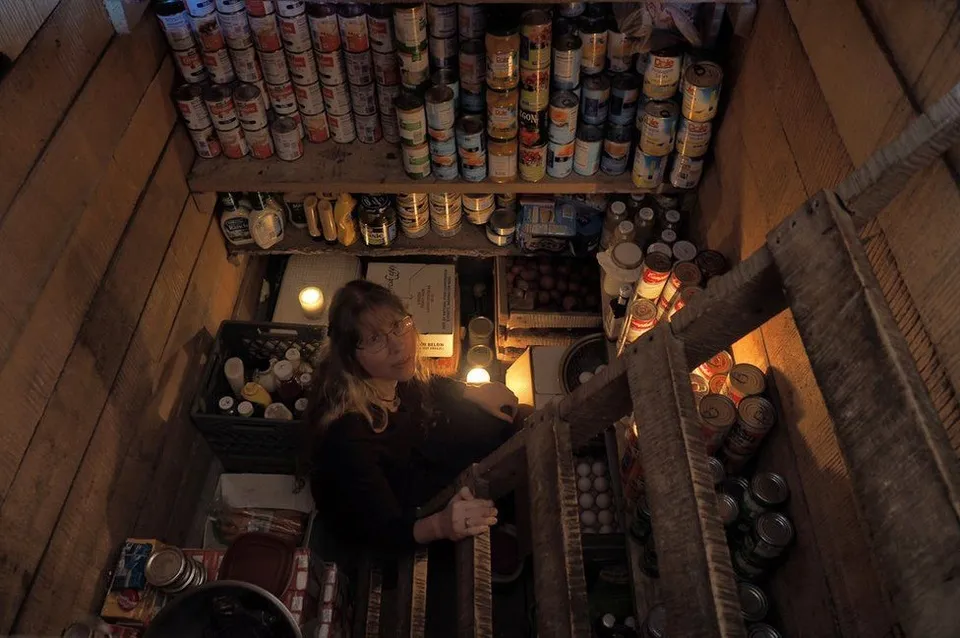
Conclusion
The life of Alaskan hunters, exemplified by the Atchley family, is a challenging but profoundly meaningful journey. They have chosen a different way of life, immersing themselves in the wilderness, relying on skills and resilience to survive and thrive. Their story is not just a tale of survival but also a hymn to freedom, family bonds, and harmony between humans and nature. Amidst the hustle and bustle of the modern world, the Atchley family’s life is a reminder of the core values of life and the ability to find happiness in the simplest things.